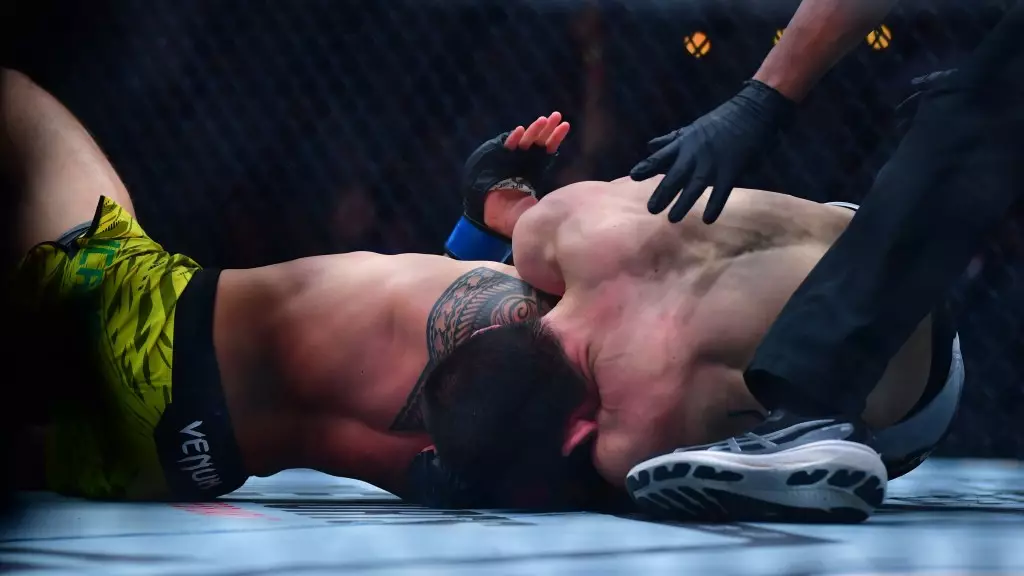In the high-stakes arena of the UFC, fighters often face intense scrutiny, especially after pivotal matches. Recently, Renato Moicano faced Islam Makhachev at UFC 311, where he suffered a quick defeat courtesy of a D’Arce choke. This submission occurred within a mere few minutes, leading to visible disappointment and criticism from various quarters, not least of all from fellow fighter Paddy Pimblett. Pimblett, known for his outspoken nature, directed his ire towards Moicano’s performance, emphasizing a fighter’s need for resilience even when facing overwhelming odds.
Pimblett’s Reaction
Paddy Pimblett expressed his frustration vocally through an Instagram post, where he articulated his disappointment with Moicano’s quick tap-out. His blunt remarks reflected a prevailing sentiment among fans: the expectation for fighters to demonstrate more tenacity. “You f*cking tap that quick, Renato? Go asleep, lad – go out on your shield,” Pimblett proclaimed. Such statements not only portray Pimblett’s desire for fighters to embody a warrior spirit but also serve to highlight the inherent pressure placed on athletes to perform under intense scrutiny.
Moicano’s decision to step in on short notice after Arman Tsarukyan withdrew from the title fight speaks volumes about his bravery and willingness to seize opportunities. Such decisions are often lauded, but with that comes heightened responsibility. Pimblett acknowledged Moicano’s courage for accepting the fight on just 24 hours’ notice. However, he juxtaposed that acknowledgment with a challenge for Moicano to confront his fears and fight with more conviction, particularly considering the rare nature of such opportunities in the UFC.
The critical lens through which Pimblett viewed Moicano’s performance raises broader questions about the mindset of contemporary fighters. In an era where safety and career longevity are high priorities, some fighters might choose to avoid serious injury, leading to complaints about perceived lack of heart or determination. Pimblett’s words resonate across the community, urging athletes to maintain their fighting spirit even against the most formidable opponents. It’s a tough balancing act, one that pits health against pride, skill against survival.
Ultimately, Pimblett’s critique serves as a reminder of the deep-rooted values often celebrated in martial arts and combat sports: resilience, heart, and the indomitable will to fight until the very end. Although Moicano faced a disappointing loss, his decision to fight under such constraints deserves recognition. However, as highlighted by Pimblett, the expectation remains for fighters to leave everything they have within the octagon. It is this combination of bravery and relentless fighting spirit that fans cherish and that molds the legacy of fighters long after the final bell rings.

